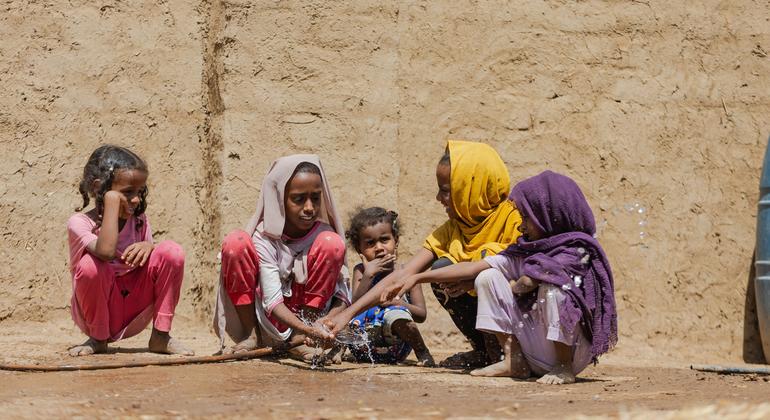South Sudan facing growing humanitarian crisis, WHO warns


The UN health agency stressed that the humanitarian, economic, social and political crises that began with a devastating civil conflict in 2013 have been worsened by the recent influx of refugees from Sudan following fighting between rival military forces there – with over 650,000 new arrivals since April 2023.
Currently, nearly six million people – or 46 percent of the population – are facing crisis levels of food insecurity – a figure expected to rise to around 7.1 million during the current lean season.
El Niño and floods
The WHO The report also highlighted that the 2023-24 El Niño weather phenomenon – one of the strongest on record – caused drought, erratic rainfall and significantly affected crops.
It also causes year-round flooding, occurring in new areas that were previously unaffected.
The UN health agency warns that severe flooding, persistent violence, poor governance, poverty and lack of infrastructure have created a complex humanitarian crisis that is hampering South Sudan’s development.
A staggering 8.9 million people, mostly in flood- and conflict-hit areas, have been affected.Women, children, the elderly and people with disabilities are at higher risk.
UNHCR’s first Forced Displacement Survey (FDS)
A pilot household survey by the United Nations Refugee Agency (United Nations High Commissioner for Refugees) on Monday, further underscoring the plight, revealing alarming levels of suffering in both refugee and host communities.
The Forced Displacement Survey (FDS) was conducted from April to December 2023 and surveyed approximately 3,100 households in South Sudan.
The report found that every community faces a range of challenges including limited services, high unemployment, lack of education, poor infrastructure and overcrowded shelters.
74 percent of households go hungry
Food is a big problem with 74 percent of refugee households and host communities are living in poverty in the past month.
And More than 40 percent of both groups had lower incomes than the previous year.Refugees from the Sudan crisis have added to instability in areas and strained services. The conflict has also affected South Sudan’s economy by shutting down a key oil pipeline.
“We need to link humanitarian aid to stabilization and development programmes to the extent possible,” said Marie-Helene Verney, UNHCR Representative in South Sudan…Long term investing is really important. to improve the well-being of refugees and the communities in which they are hosted.”
South Sudan hosts more than 460,000 refugees from Sudan, DRC and Ethiopia.
With the conflict in Sudan, South Sudan is taking in 1,600 people a day including refugees and returnees. FDS provides comprehensive socioeconomic data on refugees and host communities to inform programming and policy. This data is key to targeting assistance where it matters most and closing humanitarian development gaps.



